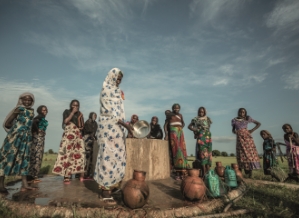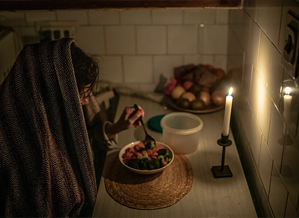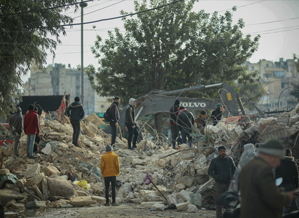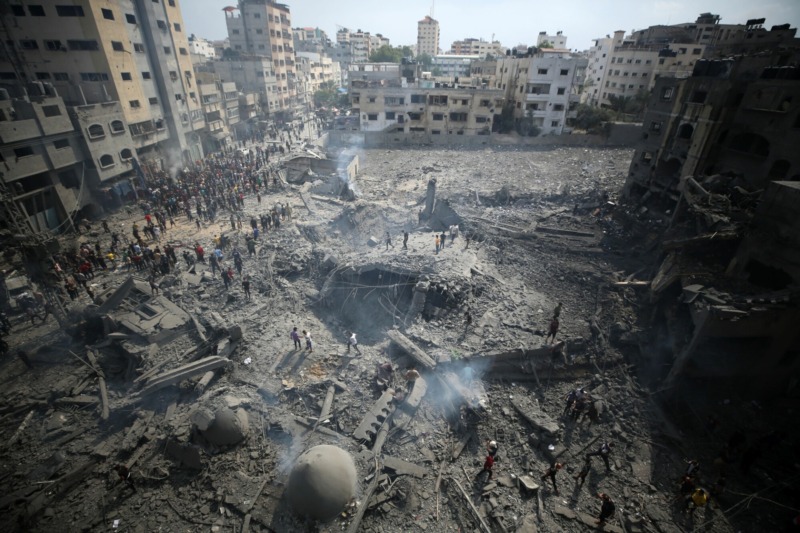Nedzmija Music’ story
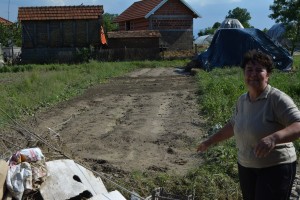
Janja is the village south of Bijeljina, of around 14.000 inhabitants. Most of them are farmers, involved in small agricultural production, while the cattle is significant part of their livelihood.
Nedžmija Musić lives with her husband in a small house, with a bit of land around it, where they cultivate some fruits and vegetables for their own use and some extra for the local market. Before the floods, they had two green houses and five cows.
Nedžmija talks of their first night of floods: “It was constantly raining for the whole day and night, during which everyone stayed awake. The cows spent the night standing in the water up to their stomach. We took two of them during the night to our neighbour, who lives in the higher ground, hoping to save at least two of them if the water continued to rise.”
Then, during the night, the water rose to the level which completely trapped them in their home. The electricity went out, there were no telephone lines and mobile phone batteries were running out fast.
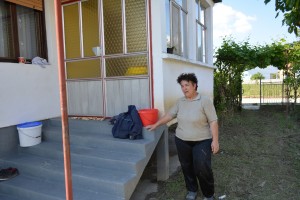
In the morning of the fourth day the water retreated enough for them to go out and assess the damage done by it. One of the green houses was completely washed away, all together with the cucumber plants, ready to pick. The field where it stood once, looked as if nothing was ever there.
She shows the destroyed green houses, one of them still standing there, in need of heavy repairs. Nedžmija adds:”We were also growing some chickens for market, all 61 of them gone, could not save them. My husband tried to save some of the potatoes this morning, but most of them are in the rotting stage, having spent three days under water. But, we are alive, and will make it happen again.”
Nedžmija also adds that they are just simple people, trying to live of their own work, but in the last four years the nature has turned against them twice, as there was flooding in 2010, but not on this scale. “And, last year, we also had strong hale during summer, which destroyed large part of our crops.”
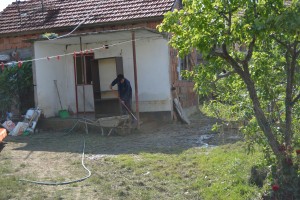
Nedžmija says that it is not unusual to experience some kind of floods in this area, but it would come for one day, produce some problems, a bit of wet, muddy grounds and it would leave fast. This time, it was fast, high and very scary. And it stayed on for days. “We have never seen so much water in our own yard. The only way to escape would be by the boat, but we did not have one. That added to the panic, you know.”
They have received some help in food, rubber gloves and hygiene products. Their son and daughter are helping with everything around the house. “We are constantly missing extra pair of hands,” shays she. “We have to clean and disinfect everything, re-build and plant green houses again, take care of the cows, get the food, and it is only four of us”, she points to her son, cleaning the barn. As we were leaving this family, Nedžmija kept repeating:”But, it could have been worse, we are all alive and well and grateful for that!”
Oxfam is working with local partners and international community to coordinate urgent response, while also assessing the assistance it can provide in the period ahead.
